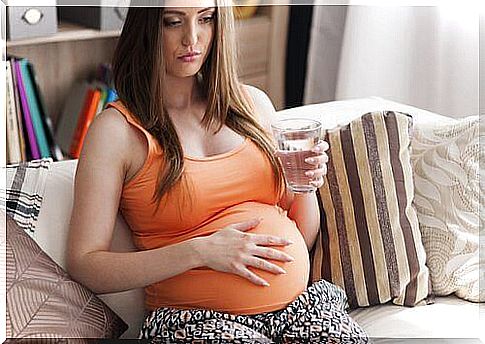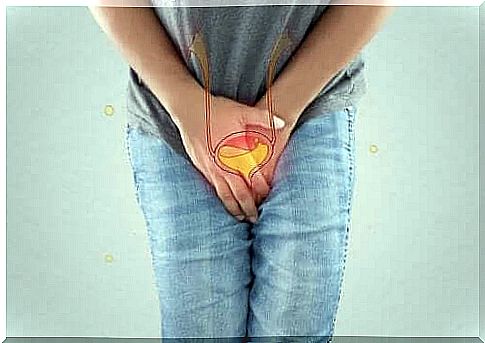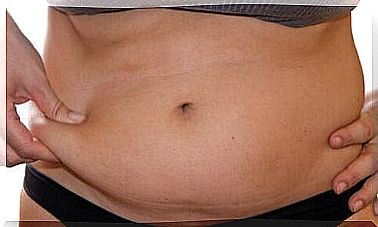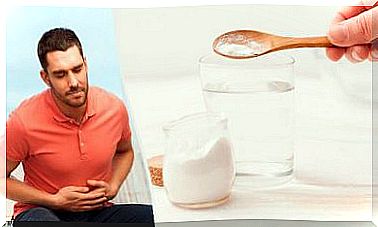Caffeine In Pregnancy: Is It Safe?

Is caffeine harmful in pregnancy ? What is the permitted consumption of coffee for mothers expecting a baby? Are Other Caffeinated Foods and Drinks Safe During Pregnancy? Find out in the article below.
The question of what diet to follow is one of the first questions that come to mind when women discover that they are pregnant. With him comes the question of caffeine. Can eating it harm a child?
There are many myths and clues about this. But which ones are true and to what extent? In this post, we dispel doubts about whether caffeine is safe in pregnancy by presenting the latest research findings.
Caffeine in pregnancy and its consumption
The vast majority of women drink their morning coffee, and many people drink it throughout the day. However, it is worth knowing that not only it contains caffeine.
Certain soft drinks, chocolate, energy drinks, infusions such as tea, and even certain medications contain caffeine. Therefore, to calculate your daily intake, you need to know them all!
Myths and Facts
There are many myths about consuming caffeine during pregnancy. Based on scientific data, we answer the question of which of them are true and which are false.
1. Caffeine causes birth defects
Some animal studies have found that mothers consuming caffeine had an increased risk of having offspring with birth defects. However , human studies have not provided conclusive answers.

A 2011 study looked at the association of caffeine consumption during pregnancy with birth defects such as esophageal and intestinal atresia, microtia / anotia, craniosynostosis, diaphragm hernia, inguinal hernia and gastroschisis.
Although a slight increase in risk was found in women who consumed caffeine during pregnancy, no convincing evidence for this was found. Therefore, in order to unequivocally answer the question about its harmfulness, further research on the relationship between caffeine and birth defects is necessary.
2. If you drink caffeine during pregnancy, your baby may be low birth weight
In 2014, researchers analyzed 13 study results in detail to determine if there was a link between caffeine consumption during pregnancy and low birth weight (less than 2.5 kg).
They found that high caffeine consumption is actually associated with an increased risk of low birth weight. For this reason, it is recommended to limit it during pregnancy.
3. Caffeine may cause a miscarriage
Experts analyzed 28 study results to determine if there was a link between caffeine consumption and a miscarriage.

The results suggest a relationship between these factors. For every 150 mg increase in caffeine consumption, the risk of miscarriage increases by 19%.
4. Caffeine crosses the placenta and can affect the baby
Various studies support this myth. If the mother consumes caffeine, the baby does to some extent as it passes through the placenta. As you probably know, caffeine is a stimulant that can cause insomnia and other side effects.
When you drink caffeine, your child also eats it. That way, he can enter a hyperactive phase that will keep him and you from falling asleep ! Hence, it is recommended to minimize the consumption of coffee and the use of other caffeinated products.
5. If you drink too much coffee, you can become dehydrated
Caffeine in coffee, tea and other beverages or food products has a diuretic effect. Therefore, it affects the increased frequency of urination.

Women who drink a lot of caffeine may be at greater risk of dehydration, which is one of the worst pregnancy complications.
6. Regular consumption of caffeine can cause prematurity
If you’ve ever wondered whether this myth is true, the answer will be that to some extent it is – there is some truth behind it, but only when it comes to high caffeine consumption.
The American College of Obstetricians and Gynecologists (ACOG) has published the results of a study that high consumption (over 200 mg per day) may increase the risk of premature birth.
Caffeine in pregnancy: a summary
There is currently no conclusive data on how much caffeine is safe for a baby in pregnancy. Nevertheless, doctors generally recognize that moderate consumption of less than 300 mg per day should not cause pregnancy complications.
Therefore, the recommendations for safe caffeine consumption by a pregnant woman range from 150 to 300 mg per day.
If the mother cannot avoid consuming caffeine during pregnancy because she has become accustomed to consuming large amounts of coffee or because of unfounded cravings, the World Health Organization recommends dosing. Either way, for personalized advice, consult your doctor.









